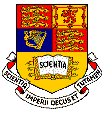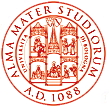Project Partners
and Background
The consortium
is composed of five academic institutions, with one participant
(UNIBO) representing two different universities (UNIBO and
DIFERARRA). This makes six different participating departments
with different expertise and primary project role.
The
consortium has the following structure:
Relevant
background of the consortium. Currently,
the consortium participants have contributed to the following
areas relevant to SOCS:
-
Formal and computational techniques of symbolic, logic-based
information processing with respect to incomplete, partial
and inaccurate knowledge about open environments, and based
upon hypothetical, temporal and inductive reasoning as well
as formal argumentation and constraint solving methodologies.
- Formal
and computational logic-based models of dialectic interaction
based upon cooperation, negotiation, argumentation and conflict
resolution. Formal frameworks for formalising and realising
rule-based interaction via shared protocols and their understanding
as if they were games, as well as heterogeneous, individual
patterns.
-
Architectures, formal definitions and computational realisations
of systems of autonomous and intelligent software components.
Use of formal composition operators between components to
achieve complex functionalities of systems.
- Concrete
applications in such areas as community-based interactive
systems, heterogeneous information management, information
dissemination, electronic commerce, knowledge management.
-
Computational logic-based proof procedures with well developed
semantics and formal properties.
SOCS
will build on this existing expertise i) to deliver novel formal
and computational logic-based accounts of societies of heterogeneous
computees, capable of interacting in a global and open computing
environment, and ii) to provide techniques for the specification,
analysis and verification of properties emerging from such interactions.
This will inform the design of systems and applications in the
envisaged global computing environment.
Back
to: Project Partners And Management Menu
|





